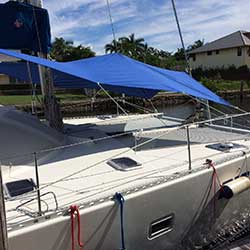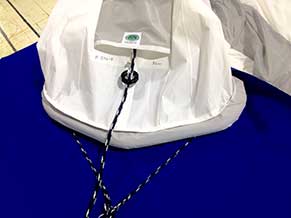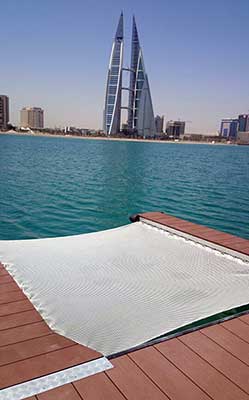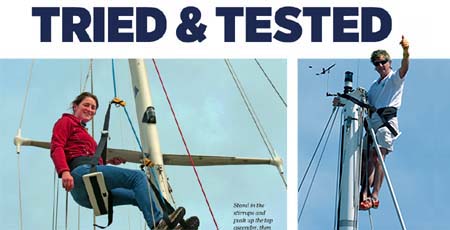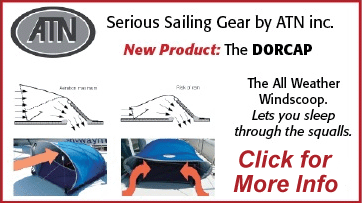ATN Sailing Equipment
Sailboat Gear News
ATN New Product- AirScoop
ATN introduces the AirScoop. Secure the AirScoop over most opening ports to allow air and light in and weather out.AirScoop
Which is the Best Way to go Up the Mast?
by David ProctorUnfortunately, there are certain pieces of equipment that need maintenance and repairs that require a sailor to go to the top of the mast...
Read the MastClimber article.
ATN Gale Sail Review- Global Solo Challenge Sponsor
ATN, inc. is a Sponsor of the Global Solo Challenge. One of the challengers, David Linger has written an article for a Gale Sail Review.
Gale Sail Page
ATN Tacker- Latitude 38 Magazine
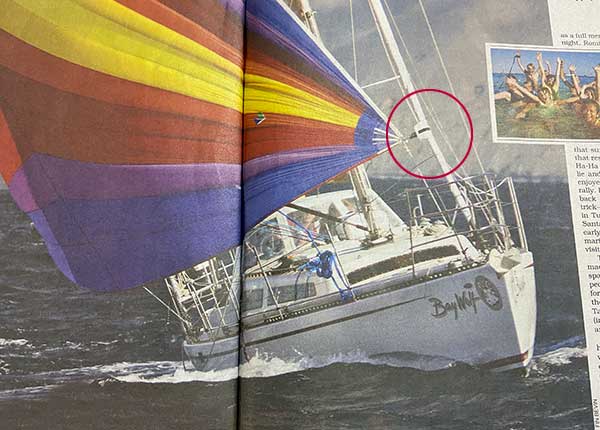
Image from the cruising race/exodus- "Ha-Ha" of US sailors down to Mexico every year, organized by "Latitude 38".
Picture illustrates perfectly the ease of operation of the ATN Tacker.
See more on the ATN Tacker page.
NEW Product- ATN Winch Handle Holder
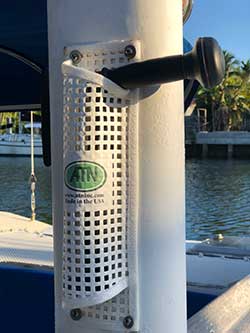
ATN Winch Handle Holder is reversible and holds the handle flush with the mast or cockpit wall automatically.
See more ATN Winch Handle Holder info.
Install A New Trampoline on your Multihull
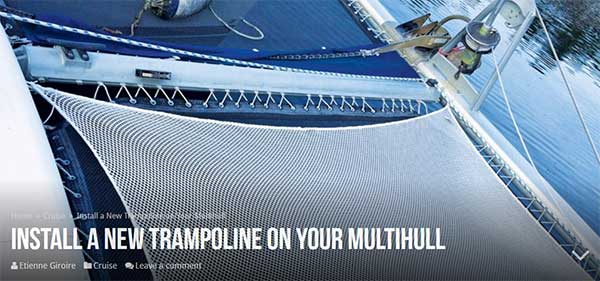
from ALL AT SEA Magazine by Etienne Giroire.
Catamarans are becoming more and more popular and with good reason. However, as a sailmaker I am often appalled at just how badly installed the between-hulls trampolines are. After many installations, I have learned the important points of safely installing a trampoline.
First, let's take a look at materials. Dyneema® is great but it's overkill, very expensive, and too often sloppily installed with ragged edges. In my experience, a polyester / polyamide / polypro knotted or knitted net properly installed will give the boat owner a firm platform to stand or lounge on. Knitted nets, with their smoother finish are more comfortable than knotted nets, which are favored for heavier work such as found on charter boats, day charter boats and diving.
I prefer nets with rope edges rather than those that come with grommets already sewn in. Metal grommets can chafe or cut the rope used to secure the net to the boat, and since the grommets are usually punched at set increments, the net is not as flexible to install. When the net can be fastened anywhere around its edge, it is easy to match the hardware on the boat.
Multihull nets are manufactured 10% smaller than the space they fill, which implies that it will have to be stretched out in order for it to fit correctly. Anyone who has installed a trampoline, knows that it is hand-tearing, blister-making, back-breaking work. This could explain why so many trampolines are attached to the boat with an uninterrupted line, woven in and out, which is quick, but will never achieve the tension required to get a firm and pleasant feel. It is also unsafe, as the single line will eventually chafe through, leaving gaping holes on the side of the net.
The best way to fasten the net to the boat is with independent lashings, one by one, which acts as a 3 to 1 purchase that will be tightened several times in the process (see photo #1).
Photo 1
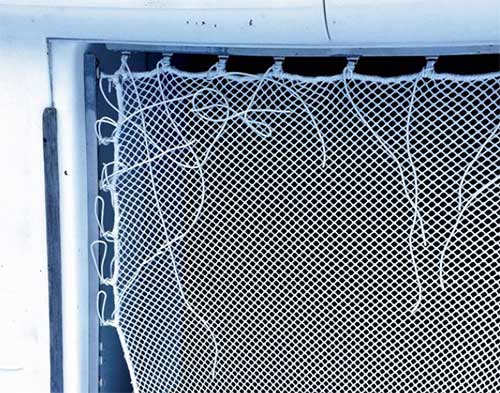

The line I favor is 3/16in (6mm) covered polyester. Lashed three times around, once pulled and locked, it offers 18 x 3/16in (1 1/8in) of polyester tying the net to the boat per lashing. With a spacing of one every five inches, all the way around the net, that's a lot of polyester which, when tightened, leaves no room for chafing.
The tools needed to install a net are gloves, pliers, fid, hot knife, a piece of scrap wood on which to cut the polyester, lots of water and the will to do it.
First, get the corners where they should be, because they are the starting point of the lashings.
Photo 2
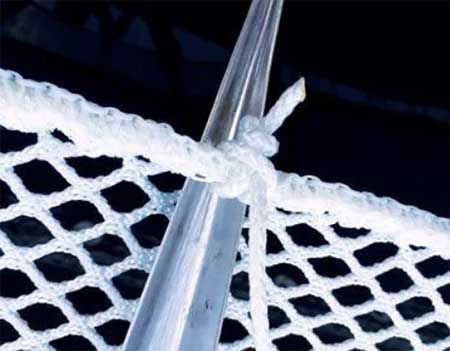

Next, and starting from the corners, make one lashing at a time, and then go back to tighten some more until the edge of the net is one inch away from the attachment point, that being a slide, pad eye or mushroom post.
You also might want to wet the net as this helps with the stretching.
I always finish the lashings with two hitches all the way around and then a flat knot melted with the hot knife to make sure that it can't come undone.
Contact Etienne at this web site. See the Multihull Net page for more info.
Latitude 38 Magazine Cover
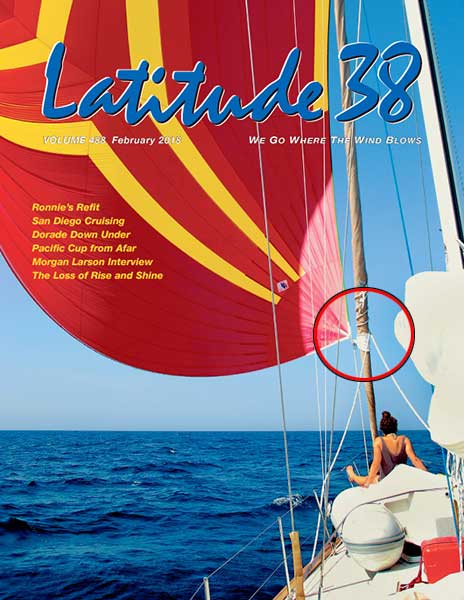
Perfect illustration of flying the spinnaker with the ATN Tacker by Latitude 38 Magazine.
The ATN Tacker makes flying the spinnaker easier and safer. Thousands sold!
The great Schooner "Meteor", 50m Huisman, off Newport, RI,
using the ATN Spinnaker Sleeve on their 9,000 sq. ft. Gennaker
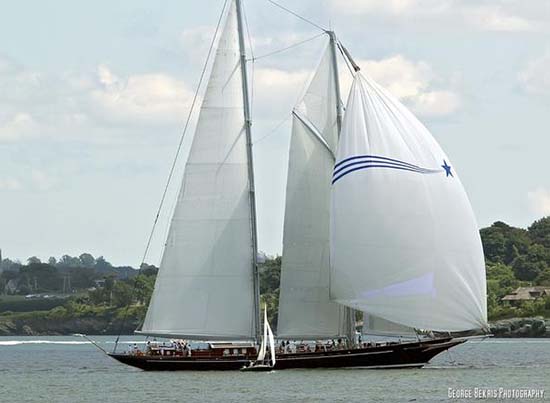
using the ATN Spinnaker Sleeve on their 9,000 sq. ft. Gennaker

Showing the ATN Mastclimber to Loick Peyron and Christian Fevrier
on the 40' trimaran "Happy", getting ready for the 2014 Route du Rhum
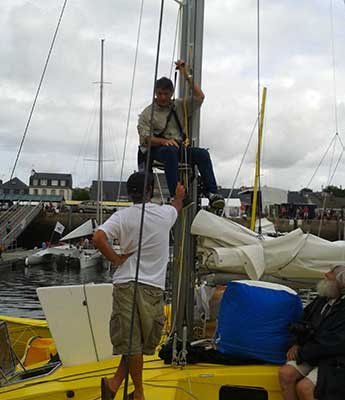
on the 40' trimaran "Happy", getting ready for the 2014 Route du Rhum

Deliverying an ATN Spinnaker Sleeve to Loick Peyron, on his 40'
Walter Greene "Happy", getting ready for the upcoming "Route du Rhum".
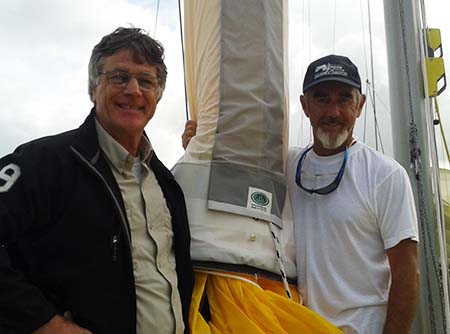
Walter Greene "Happy", getting ready for the upcoming "Route du Rhum".

ATN announces a new and improved Spinnaker Sleeve. The new Spinnaker Sleeve has a soft mouth opening to facilitate raising and lowering the spinnaker with no chafe and with less weight and easier stowage. See more on the Spinnaker Sleeve page.
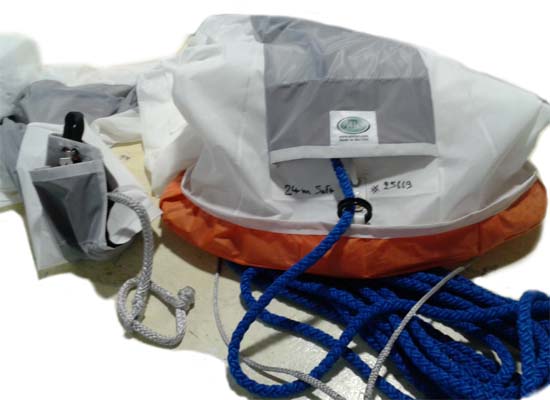
ATN announces a new product, ATN Multihull Nets/Trampolines. These Multihull Nets and Trampolines come in two styles for Cruising and Racing. More Multihull Nets/Trampolines information.
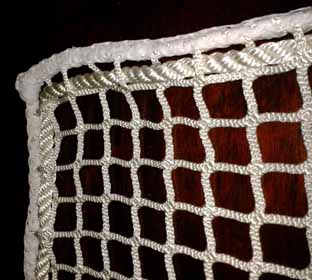
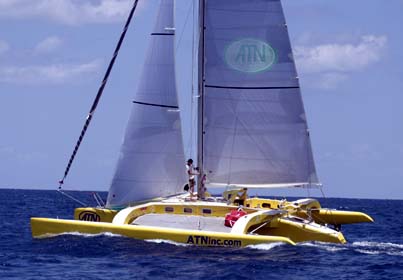
Please visit the link for the online magazine review Tried and Tested from Yachting Monthly magazine.
See the ATN Spinnaker Sleeve on the 1930 J Boat "Shamrock V" under way.
All ATN Sailing Products Video
Archive
Route du Rhum 2010

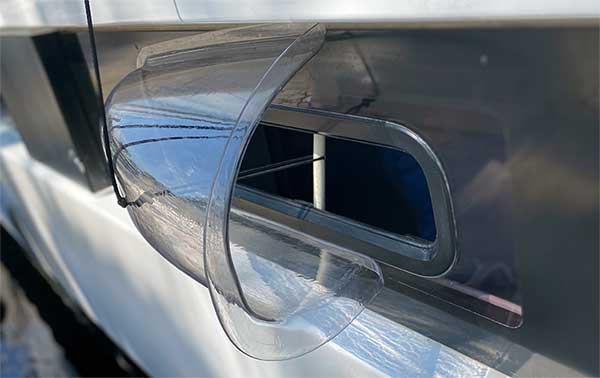
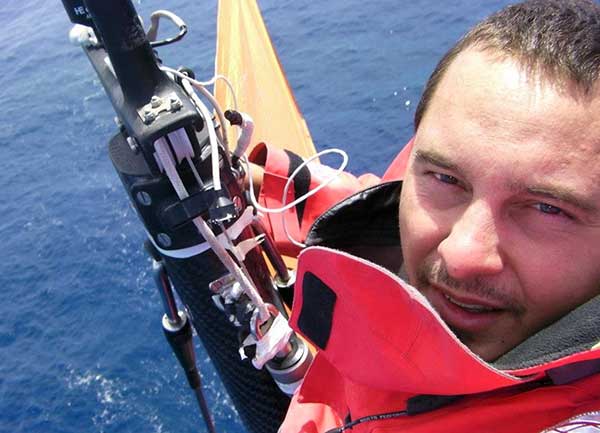

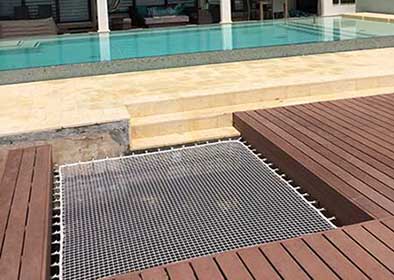 >
>